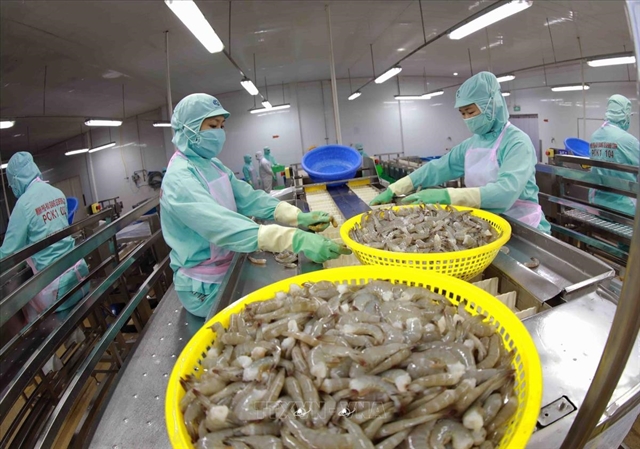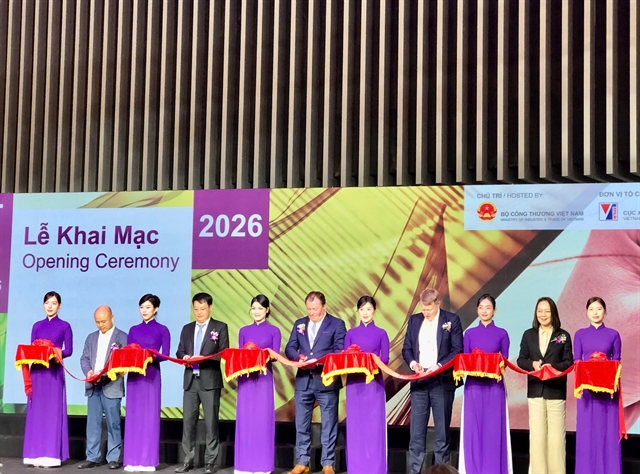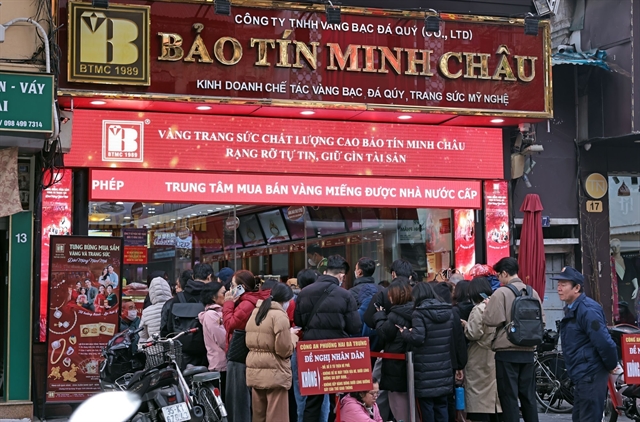 Business Beat
Business Beat
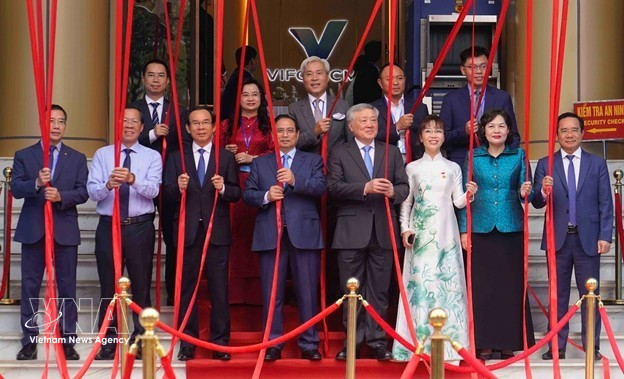
Last month, Toyota Việt Nam unveiled the recommended retail prices for its first shipment of cars imported from Indonesia at zero tax, and most of them are higher than before the policy of zero tariffs took effect.
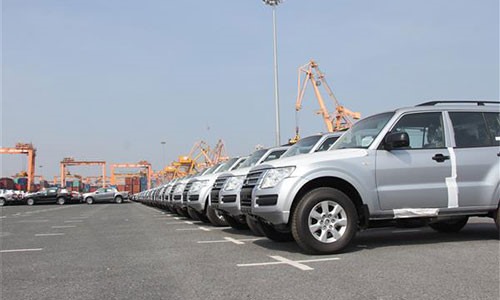 |
| Last month, Toyota Việt Nam unveiled the recommended retail prices for its first shipment of cars imported from Indonesia at zero tax, and most of them are higher than before the policy of zero tariffs took effect. — Photo kienthuc.vn |
Compiled by Thiên Lý
Last month, Toyota Việt Nam unveiled the recommended retail prices for its first shipment of cars imported from Indonesia at zero tax, and most of them are higher than before the policy of zero tariffs took effect.
The imports include Fortuner, Hilux and Hiace. The lowest price for a Fortuner SUV is VNĐ1.026 billion (US$44,609), VNĐ45 million ($1,957) higher than the rate in late 2017.
Three versions of the Hilux cost VNĐ695 million, VNĐ793 million, and VNĐ878 million.
Earlier, more than 2,000 Honda cars were imported from Thailand, the first batch to be subject to 0 per cent duty under the ASEAN Free Trade Agreement (AFTA) that took effect this year.
The Jazz, Accord, CR-V and Civic models also saw prices higher than expected. From July 1, the price of all versions of the CR-V has been raised by VNĐ10 million.
The high prices have come as a rude shock to many Vietnamese who had been dreaming of buying a car after zero import tariffs made prices much cheaper.
With that dream shattered, the expected boom in car sales this year also looks like a mirage now.
There seem to be three reasons for this.
According to the Việt Nam Customs, automobile imports from Thailand this year have plummeted, with only 9,600 cars coming in as of June compared to 19,100 in the same period last year.
Imports from Indonesia, the US, Japan, Germany and South Korea too have been modest after falling by 15-30 per cent.
Analysts said this sharp drop in imports has resulted in a scarcity of the vehicles on the market, enabling traders to hike prices.
But some car traders offered another explanation for the higher prices, saying import costs are now very high due to some tough new rules.
Experts agreed, pointing to a Government decree on automobiles that had taken effect on January 1.
It requires car importers to obtain a vehicle type approval (VTA) certification for quality, safety and environmental protection. The VTA must be issued by authorities in exporting countries.
Once the vehicles arrive in Việt Nam, a sample is selected from every batch of imports to run tests for emission, quality and technical safety. The inspection is repeated shipment after shipment even if it is the same car model.
The experts said this creates additional costs: a complete inspection could take one to two months, and during that time other cars in the consignment have to stay at the port, with the importer paying daily charges for this.
The final reason is that a majority of imported cars that Vietnamese customers prefer attract a new excise duty that is higher than before.
It has sadly dawned on many consumers that a tax reduction does not automatically mean lower prices.
Many experts also claim that tax is not always a good tool to settle market-related issues or protect consumers’ benefits.
The story of tax
Tax-related stories have been in the news recently with the Ministry of Finance proposing some new taxes or changes to tax rates on certain goods and services to the chagrin of many consumers.
In April, the ministry had proposed a tax on house depending on their construction value in a new property tax bill.
The bill mulls two options for the value of the house that will trigger the tax: VNĐ700 million ($30,400) and VNĐ1 billion ($43,500).
The proposed tax rate is 0.3 or 0.4 per cent annually on the value above the agreed threshold.
The proposal has given rise to heated debates for a while now.
Some said while the housing tax law is necessary, “people’s incomes should be taken into consideration.”
The finance ministry justified the tax by saying that the proposed rate is among the lowest in the world besides which it would help stabilise the property market, reduce speculation and increase efficiency in use of properties.
But a Government official living in HCM City pointed out that a house cannot be bought for less than VNĐ700 million in Hà Nội or HCM City.
“I had to borrow 70 per cent of the house value from a bank. Now if I have to pay an annual house tax, I don’t know if I can repay the debt.”
A senior finance and banking expert said the property tax law should only impose a land tax and not on the house.
Lê Hoàng Châu, chairman of the HCM City Real Estate Association, said if the law takes effect, the real estate market would be hit, slowing down business and investment activities.
He said there should be no tax on houses worth less than VNĐ1 billion.
Recently the finance ministry has also been talking about hiking the environmental protection tax on petrol and oil to better protect the environment since the country has had to cut import taxes under international commitments.
The ministry’s proposal is also part of a bill on environmental protection tax.
If approved, the environment tax on petrol would be increased by a third to VNĐ4,000 (17.54 US cent) per litre, the ministry said on its website. The tax on diesel, coal and lubricants would also increase though the ministry has not indicated by how much.
Ministry officials said tax hikes are necessary since due to its rapid international integration, Việt Nam has international commitments, including cutting import taxes, and the move is aimed at safeguarding national interests.
They said petrol and oil prices in Việt Nam are lower than in 136 countries, including many ASEAN members such as Laos, the Philippines and Singapore.
But many businesses are concerned that a fuel tax hike will mean a rise in the retail price of petrol, which will then affect the prices of almost all other products, burdening the economy, especially local enterprises, and increasing inflation.
Last August, the finance ministry had also made a proposal to slap a special consumption tax of 10 per cent on sweetened drinks to combat child - and adult - obesity rates, a problem worrying the Government and health experts.
This would mean that all sweetened beverages, regardless of whether they are soft drinks, tea, coffee or energy drinks, will be subject to the tax. However, dairy products will be excluded.
The proposal to tax sweet drinks is a part of the ministry’s proposal to amend the laws on value-added tax (VAT), special consumption tax, corporate income tax, personal income tax and natural resources protection tax.
But the proposal has encountered opposition from other ministries and business groups, and both foreign and local experts.
Experts from the ministry said sweetened beverages have a negative impact on health, particularly on that of obesity patients.
The adult obesity rate in Việt Nam is 25 per cent. Among children under five, the rate had increased from 0.6 per cent in 2000 to 5.3 per cent in 2015, while in HCM City it had increased to 10.8 per cent. In the city’s downtown area, it is even higher: 12 per cent.
The obesity rate among children under five is continuing to increase rapidly, putting them at risk of cardiovascular disease, hypertension, stroke, atherosclerosis and other ailments.
Ministry officials said imposing special taxes would reduce the consumption of sweetened beverages.
But Amcham Việt Nam said in a statement that most countries do not have this tax because it harms the economy but has not been proven to protect public health.
It said only four countries in the Asia Pacific tax sugary beverages. Some countries with a high rate of obesity such as China, South Korea, Australia and New Zealand do not, mainly because the effect of such a tax has not been proved anywhere, it said.
In other words, imposition of excise tax on sugary beverages will not make the rate of obesity and diabetes reduce, meanwhile it will have socio-economic impacts on the industry and economy.
Denmark abolished a tax on soft drinks in 2013 in order to create jobs and help the economy.
Many critics have claimed that the tax is ineffective.
In New Zealand, when the government was considering a tax on sugary beverages, the New Zealand Institute of Economic Research reviewed 47 studies and concluded there was no evidence that the tax helped improve public health or reduce obesity and diabetes.
In a recent report on non-communicable diseases, the World Health Organisation (WHO) does not recommend imposing taxes on food and beverages. Given this, few countries will impose a tax on foods or beverages.
AmCham Vietnam’s executive director Adam Sitkoff said “In order to control these health problems, we should understand their causes instead of imposing taxes.”
Medical reports indicate that obesity and diabetes are caused by an unhealthy diet and lifestyle. Therefore, education of consumers, especially young people, on a healthy diet and lifestyle is vital. Nutrition information should be provided on food and beverage products packaging so that consumers can make informed choices.
Education at school on a healthy and active lifestyle will also help improve children’s health.
Sitkoff said: “Vietnamese Government should educate people about a healthy lifestyle, exercise and diet. Educating people is clearly important. The Government should not use unscientific methods to tax products to protect the health of people.”
Herbert Cochran, director of the Việt Nam Trade Facilitation Alliance, said the imposition of the special consumption tax would only create discrimination within the food and beverage industry.
“Studies indicate that various factors such as unhealthy diets and inactive lifestyles contribute to health problems, including diabetes and obesity. Taxing sweet beverages may not help reduce or prevent the problems.
“Critics may question why other foods and beverages with a high sugar content are not taxed.”
Small and medium-sized enterprises would be hurt the most and might have to close down since the price of beverages would rise by about 12 per cent, hitting sales, he warned. — VNS

